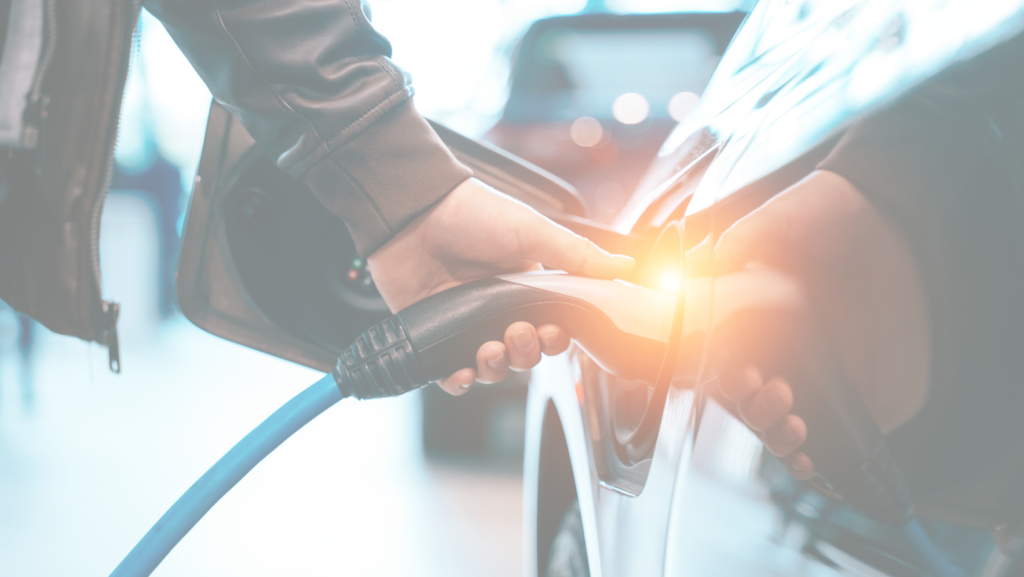In recent years, the electric vehicle (EV) industry has seen remarkable advancements, particularly in areas such as the development of innovative EV charging stations. However, the quest for a battery that can truly meet the demands of modern transportation is ongoing. While lithium-ion batteries have been the mainstay for EVs, the emergence of all-solid-state batteries (ASSBs) represents a revolutionary leap forward in battery technology. In this article, we delve into the transformative potential of ASSBs and explore how they could reshape the future of electric vehicles and the infrastructure supporting them, including EV charging stations.
What Are All-Solid-State Batteries?
At their core, all-solid-state batteries are a new type of energy storage technology that replaces the liquid or gel electrolyte found in traditional lithium-ion batteries with a solid electrolyte. This seemingly simple change brings about a host of significant improvements in terms of performance, safety, and efficiency.
Traditional Lithium-Ion vs. All-Solid-State Batteries
Traditional lithium-ion batteries consist of two electrodes—a positive cathode and a negative anode—separated by a liquid electrolyte. While these batteries have been instrumental in the growth of portable electronics and EVs, they are not without their limitations. In contrast, ASSBs use a solid electrolyte, which can enhance battery performance in several critical areas:
- Energy Density: ASSBs can potentially offer higher energy densities compared to traditional lithium-ion batteries. This is due to the use of a lithium metal anode, which can store more energy compared to the conventional graphite anode found in most lithium-ion batteries.
- Safety: One of the biggest advantages of ASSBs is their safety profile. The liquid electrolytes in traditional lithium-ion batteries are flammable and can cause dangerous thermal runaway reactions. Solid electrolytes, on the other hand, are generally more stable and less prone to catching fire, which significantly reduces the risk of battery fires and explosions.
- Longevity: ASSBs are expected to have longer lifespans compared to their liquid counterparts. The solid electrolytes are less prone to degradation, which can lead to improved cycle life and better long-term performance.
- Charging Speed: Faster charging capabilities are another potential benefit of ASSBs. The solid electrolytes may support higher charging currents without the risk of overheating, leading to quicker charge times for electric vehicles.
Why All-Solid-State Batteries Matter for Electric Vehicles
The transition to all-solid-state batteries could be a game-changer for the electric vehicle industry. Here’s a closer look at how ASSBs could impact EVs and accelerate the shift towards cleaner transportation solutions.
1. Increased Driving Range
One of the most significant barriers to widespread EV adoption is range anxiety—the fear that an electric vehicle will not have enough battery power to complete a journey. All-solid-state batteries could address this concern by offering higher energy densities. A higher energy density means that EVs can travel further on a single charge, making electric vehicles more practical for long-distance travel and reducing the frequency of recharging stops.
2. Improved Safety
Safety is a major consideration for all types of batteries, especially in the high-stakes realm of electric vehicles. Traditional lithium-ion batteries are susceptible to thermal runaway, which can lead to fires or explosions. By contrast, the solid electrolytes used in ASSBs are not flammable and are less prone to leakage or other forms of failure. This makes ASSBs a safer alternative for electric vehicles, which is crucial for consumer confidence and regulatory approval.
3. Faster Charging Times
The convenience of fast charging is a key factor in the usability of electric vehicles. ASSBs have the potential to offer significantly faster charging times compared to current lithium-ion batteries. This advancement could make EVs as convenient as gasoline vehicles, with quicker stops at charging stations and more efficient use of time.
4. Cost-Effectiveness Over Time
While ASSBs may currently be more expensive to produce compared to traditional batteries, the long-term benefits can outweigh the initial costs. The increased energy density and longer lifespan of ASSBs could lead to lower costs per mile for drivers and potentially reduce the total cost of ownership for electric vehicles over their lifetime.
Challenges and Future Outlook
Despite their immense potential, all-solid-state batteries are not without challenges. The technology is still in the developmental stage, and several hurdles must be overcome before ASSBs can become commercially viable on a large scale.
1. Manufacturing Complexities
Producing ASSBs requires new manufacturing techniques and materials that are not yet fully optimized. Scaling up production from laboratory settings to mass manufacturing will require significant investment and innovation.
2. Material Costs
The materials used for solid electrolytes and lithium metal anodes can be expensive. Researchers are exploring alternative materials and methods to reduce these costs and make ASSBs more affordable for consumers.
3. Durability and Performance
Ensuring that ASSBs perform reliably under various conditions is essential. Ongoing research aims to address issues related to the long-term durability of solid electrolytes and the interfaces between different battery components.
The Road Ahead
The future of electric vehicles is inextricably linked to the advancements in battery technology and the development of efficient EV chargers. All-solid-state batteries represent a promising frontier in this field, offering solutions to some of the most pressing challenges facing the industry today. As research progresses and manufacturing techniques improve, ASSBs could become the new standard for EVs, making electric transportation safer, more efficient, and more accessible. Enhanced battery performance could also drive innovations in EV chargers, ensuring faster and more convenient charging solutions for consumers.
In summary, all-solid-state batteries have the potential to unlock a new era of electric vehicle technology. By addressing key issues such as safety, energy density, and charging speed, these advanced batteries could pave the way for a future where electric vehicles are not just an alternative but the preferred choice for consumers and businesses alike. As we look to the future, the advancements in ASSB technology and the development of cutting-edge EV chargers will likely play a pivotal role in shaping the next generation of electric vehicles, helping to drive the global transition to sustainable and clean transportation solutions.


